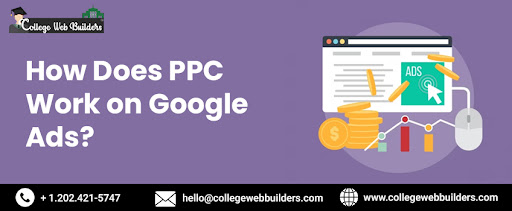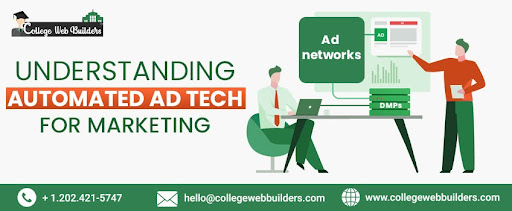
How Does PPC Work on Google Ads?
Pay-per-click (PPC) is an advertising model that allows advertisers to place ads on an advertising platform and pay a platform host when an ad is clicked. Hire our PPC management service in Ashburn USA. The purpose of advertisements is to direct the clicker to the advertiser's website or app, where the user can take a useful action, such as purchasing a product.
Search engines are popular hosting platforms because they allow advertisers to display ads related to what users are searching for. Advertising services such as Google Ads and Microsoft Ads use real-time data to operate as real-time bidding (RTB), where advertising inventory is sold in closed automated auctions. Hire a PPC services company who can manage your PPC ads and maintain consistency.
How Does PPC Work??
Whenever an ad slot appears on a search engine results page (SERP), the keyword is immediately auctioned off. A combination of factors, including bids and ad quality, determines the winner of the first place. These auctions are a continuation of the PPC services. It starts when someone searches for something in a search engine. If there are advertisers interested in showing ads related to a user's search terms, an auction will be run based on the keywords the advertiser bid for.
Ads that win auctions appear on search engine results pages. To participate in these auctions, advertisers use accounts on platforms such as Google Ads to personalize their ads and determine when and where to display these ads. Get a PPC service at your side to perform well in this digital era. Accounts are divided into campaigns by your PPC services agency for easy management and reporting on different locations, product types, or other useful categories. Depending on the type of keyword search you use, advertisers can match their search terms with some degree of accuracy. For example, advertisers can choose to match keywords exactly to search terms, or allow options such as different word order, different spellings, or including different words.
You can also use negative keywords to prevent your ads from showing in searches that contain those keywords to avoid extraneous traffic and our PPC management service in Ashburn USA knows that this is very important for any PPC ads. Ad extensions are great because they increase the visibility of your ads, making them more attractive to users and providing more information.
Pay-per-click marketing channels span a variety of advertising platforms, the most common being Google Ads and Bing Ads and each of these platforms has a variety of ad formats, including: - Search Ads
- Shopping Ads
- Display Ads
- Video Ads - Gmail Ads
You'll find that most businesses start out with PPC marketing or with PPC management service in Ashburn VA for the simple reason that Google Ads allows them to reach the largest number of prospects and customers and provides a variety of ways to set up and run campaigns. depending on your goals.
However, it doesn't change how PPC actually works, regardless of platform and ad format, which is a fairly straightforward process:
- Register an advertising account on the platform.
- Choose the right targeting by creating your ad and adding keywords, audiences and more.
- Fix the maximum price you are willing to pay for each click.
Your ad will be auctioned with other advertisers bidding for the same keyword. The auction determines the order in which ads are displayed. Our PPC services company in Ashburn USA can help you with this.
Pay When Your Ad is Clicked
It's very simple and easy to learn, and although there are differences between the different ad formats (like the different bid strategies you can use), the basic principles remain the same.
"Pay When Your Ad is Clicked" refers to a pricing model used in online advertising known as pay-per-click (PPC) advertising. In this model, advertisers only pay when their ad is clicked by a user, as opposed to paying for ad impressions or views. Here are some key points about the "Pay When Your Ad is Clicked" pricing model:
1) Cost-effectiveness: PPC advertising offers a cost-effective approach as advertisers only pay for actual clicks on their ads. This ensures that the budget is utilized efficiently, targeting users who have shown interest by clicking on the ad.
2) Targeted Reach: PPC allows advertisers to target specific demographics, interests, locations, or keywords, ensuring that their ads are displayed to a relevant audience. By reaching the right audience, advertisers can increase the chances of attracting potential customers and achieving higher conversion rates.
3) Measurable Results: The PPC model provides detailed metrics and analytics that allow advertisers to track the performance of their ads accurately. This includes data on impressions, clicks, click-through rates (CTR), conversions, and cost per conversion. These insights enable advertisers to optimize their campaigns and make data-driven decisions to maximize their ROI.
4) Flexibility and Control: Advertisers have control over their PPC campaigns, including setting a budget, specifying bid amounts, and adjusting campaign parameters in real-time. This flexibility allows advertisers to optimize their ad performance and adapt their strategies based on the campaign's results.
5) Fast and Immediate Results: PPC advertising can generate immediate results as ads are displayed instantly once the campaign is set up. This is particularly beneficial for businesses looking for quick visibility and results, such as promoting limited-time offers or launching new products/services.
6) Brand Exposure: Even if users don't click on the ad, they still see it, which increases brand exposure and awareness. This can have long-term benefits by building brand recognition and familiarity among the target audience.
7) Competition and Auction-Based Bidding: In PPC advertising, the cost per click is determined through a bidding process, where advertisers compete for ad placements. The bidding system ensures fair competition and allows advertisers to adjust their bids based on their budget and campaign goals.
Conclusion
This guide will help you get started with contextual advertising. We cover everything you need to get started or get started right after launching a PPC account. In conclusion, PPC advertising in Google Ads is a valuable marketing strategy that offers businesses numerous advantages. By leveraging the power of targeted ads, cost control, and measurable results, businesses can drive relevant traffic, increase brand visibility, and achieve their marketing goals. Google Ads provides a wide range of ad placement options, allowing businesses to choose the formats that best align with their objectives and reach their target audience effectively.
The ability to set budget limits and track performance metrics enables businesses to optimize their campaigns for better results and maximize their return on investment. With quick and immediate results, businesses can swiftly increase their online visibility and generate leads or sales. The remarketing capabilities offered by Google Ads also allow businesses to re-engage with potential customers who have shown interest in their offerings. By continuously refining and optimizing PPC campaigns, businesses can stay competitive and ensure their ads are reaching the right audience at the right time. Overall, PPC advertising in Google Ads provides businesses with a powerful tool to drive targeted traffic, enhance brand awareness, and achieve their desired outcomes in the dynamic digital advertising landscape. PPC services has bought a huge advertising platform but the unofficial motto of the world of contextual advertising is “always test”. You should test different features and strategies for your account. For more information, visit Collegewebbuilders.com.
- Tags: Marketing, Onlline, Internet





